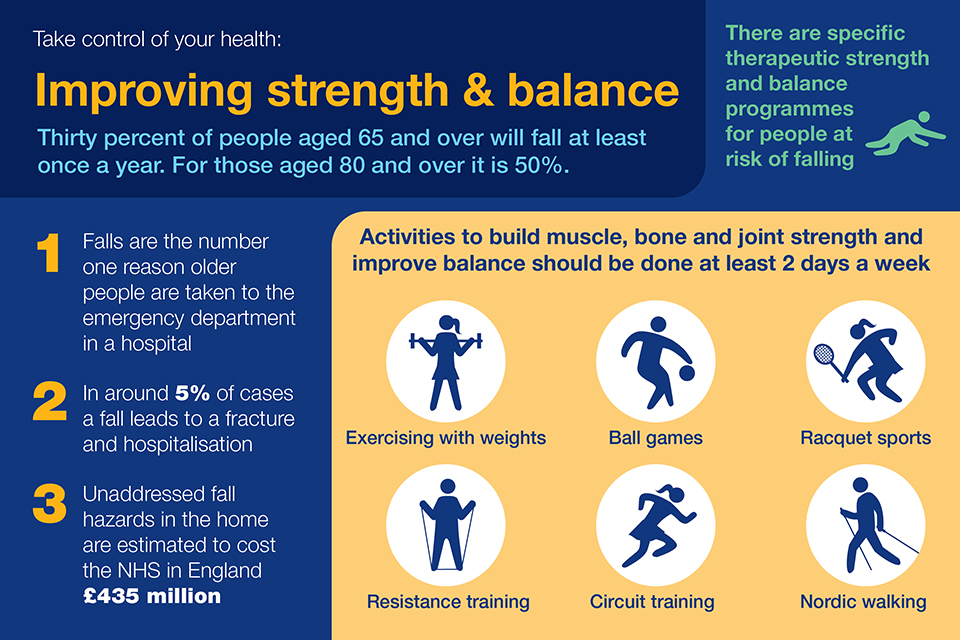Unknown Facts About Dementia Fall Risk
Unknown Facts About Dementia Fall Risk
Blog Article
10 Easy Facts About Dementia Fall Risk Described
Table of ContentsThe smart Trick of Dementia Fall Risk That Nobody is Talking AboutThe Dementia Fall Risk Statements6 Simple Techniques For Dementia Fall RiskDementia Fall Risk Fundamentals Explained6 Easy Facts About Dementia Fall Risk Explained
Nevertheless, based upon symptoms and signs, such as proof of head injury or a new focal neurologic deficiency, computed tomography or MRI of the brain may be indicated - Dementia Fall Risk. An assessment for sources of syncope should be carried out just if there is solid uncertainty, as in the case of reoccurring, inexplicable falls
Health care suppliers make use of a loss threat evaluation to determine your risk variables for falling and make handy suggestions. A loss threat evaluation is crucial since recognizing which factors boost your chances of falling aids you: Minimize your threat of falling or harming on your own.
All adults 65 years and older need to have an initial autumn risk testing. Have actually fallen in the previous year. Worry regarding falling.
Getting My Dementia Fall Risk To Work

Discover this detailed nursing care plan and administration guide to effectively stop danger for falls among people. Get crucial understanding concerning the nursing assessment, nursing medical diagnosis, and objectives specifically customized to clients that are at risk for drops. A is specified as an occasion that results in a person coming to relax unintentionally on the ground or flooring or other lower level (WHO, 2021).
Dropping is the second leading reason of fatality from unintentional injuries around the world. It is approximated that fall fatality prices in the United state
About Dementia Fall Risk
If this price continues, the CDC prepares for seven loss deaths every hour by 2030.
Yearly, over 800,000 clients are hospitalized as a result of drops. Registered nurses play a major role in avoiding falls for their clients via education, examining loss threat, creating much safer environments, and giving treatments in avoiding injuries from drops. Numerous risk aspects and conditions contribute to drops, including the following:. Aged 65 years and older; lower limb prosthesis; use assistive devices such as pedestrian, crane, and wheelchair; living her latest blog alone.
Client will certainly demonstrate careful prevention procedures. Patient and caregivers will certainly carry out strategies to enhance safety and security and avoid drops in the home. Loss are due to several aspects, and a holistic approach to the private and setting is essential. Suppose an individual is taken into consideration at high threat for falls after the screening.
What Does Dementia Fall Risk Do?
A requires using a validated device that researchers have actually checked out to be useful in naming the root causes of falls in a person. As an individual's wellness and conditions change, reassessment is called for. The degree of loss threat can be determined making use of the evaluation of innate and external aspects. Criterion evaluation devices can additionally be utilized (discussed listed below).
Individuals are most likely to drop once again if they have actually maintained one or more drops in the past six months. The older populace goes to boosted risk of fall-related have a peek at these guys readmissions based on a research determining the elements predictive of repeat falls connected outcomes (Prabhakaran et al., 2020). Individuals with damaged recognition and disorientation might not recognize where they are moved here or what to do to help themselves.
The ability of individuals to secure themselves from falls is influenced by such elements as age and development. Older individuals with weak muscles are much more likely to fall than those that maintain muscle strength, flexibility, and endurance.
Dementia Fall Risk for Beginners
Less contrast level of sensitivity was quite connected with both raised prices of drops and other injuries, while reduced aesthetic skill was just related to boosted loss price (Wood et al., 2011). Sensory understanding of ecological stimuli is critical to safety. Vision and listening to disability restriction the individual's capacity to perceive threats in the surroundings.
Older adults who have bad balance or problem strolling are most likely to fall. These problems might be related to lack of exercise or a neurological reason, arthritis, or other clinical conditions and treatments. An essential risk variable highlighted in a study is that adults with rheumatoid arthritis are at high threat of falls, including puffy and tender reduced extremity joints, tiredness, and use of psychotropic medications (Stanmore et al., 2013).
Report this page